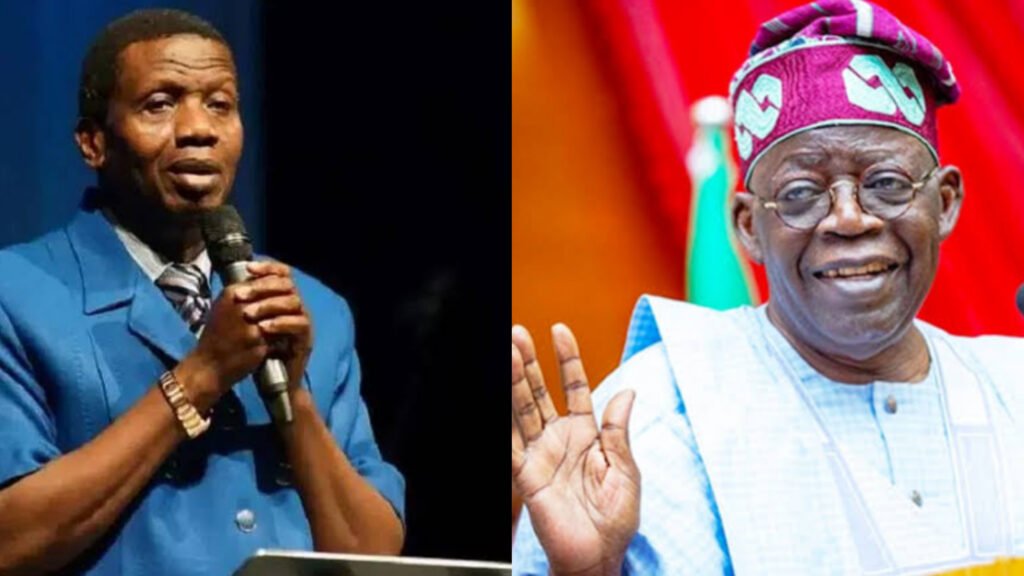Pastor Enoch Adeboye, the General Overseer of the Redeemed Christian Church of God (RCCG), recently sparked a significant debate among Nigerians with his statement that the country’s issues are primarily spiritual and require prayer.
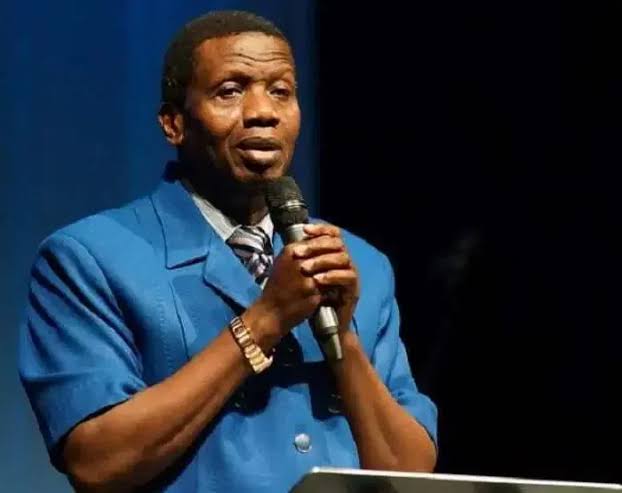
Speaking during his visit to Kaduna State, Adeboye emphasized that the socio-economic and security challenges facing Nigeria are beyond the capacity of political leaders to resolve and need divine intervention. He asserted that, despite the best efforts of the government, the problems persist and are worsening in some areas, which, according to him, indicates a need for urgent spiritual solutions.
This statement has resonated with many of Adeboye’s followers, who agree that Nigeria’s challenges require more than just political and economic solutions. They argue that prayer and spiritual guidance are essential to overcoming the nation’s difficulties. However, this perspective has also drawn criticism from other Nigerians who believe that attributing the country’s woes solely to spiritual issues overlooks the glaring realities of bad governance, corruption, and the misuse of taxpayer money. Critics argue that while prayer is important, it should not be used as an excuse to ignore the need for good governance and accountability.
The debate reflects the broader tension in Nigeria between those who emphasize spiritual solutions and those who advocate for practical, systemic changes to address the country’s problems. As Adeboye continues to tour the nation, urging Nigerians to remain hopeful and patient, the discussion about the role of spirituality versus governance in solving Nigeria’s issues is likely to intensify.
Reactions
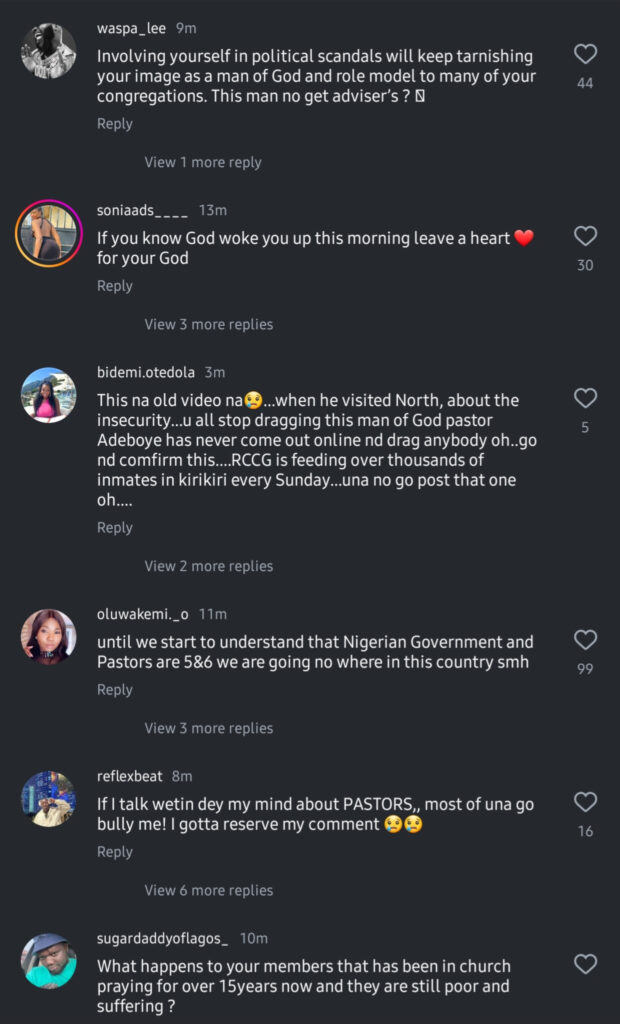
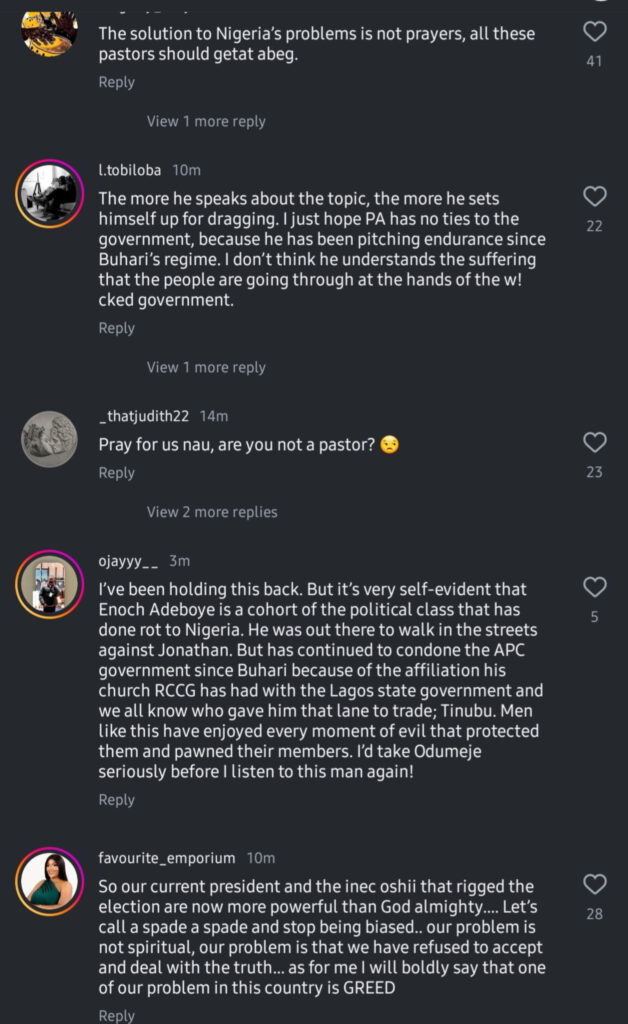
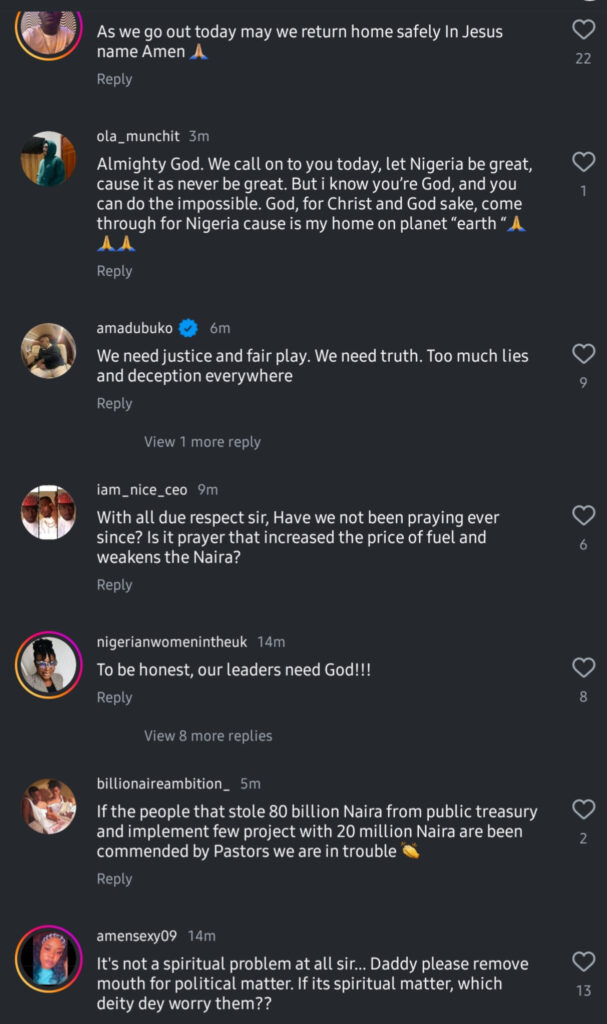
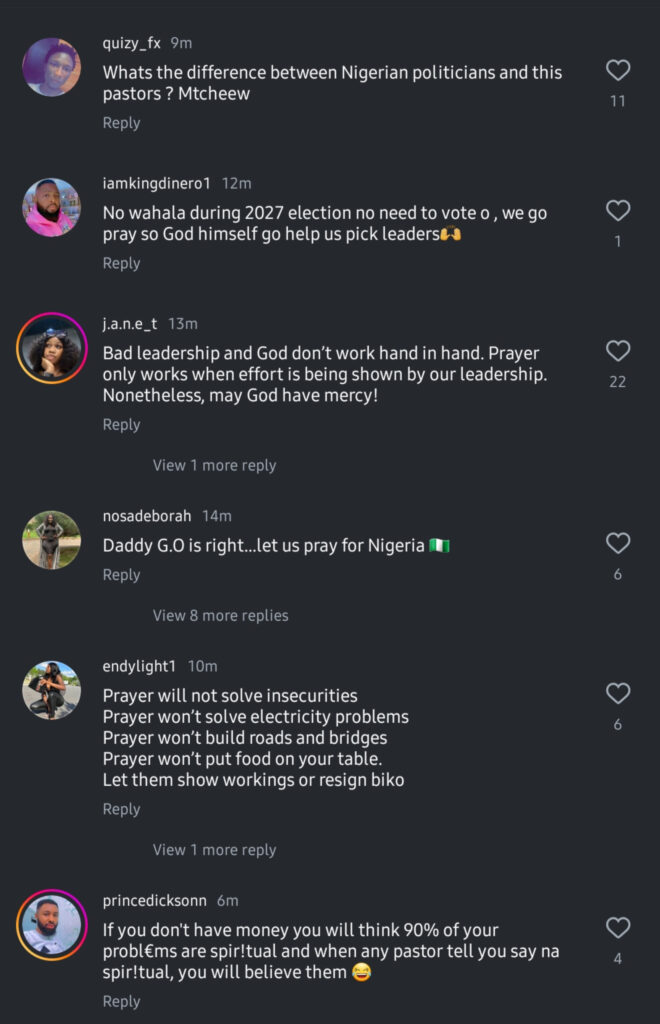
This ongoing conversation highlights the complex interplay between faith and politics in Nigeria, where religious leaders wield significant influence, and their pronouncements can have far-reaching implications for public discourse.
